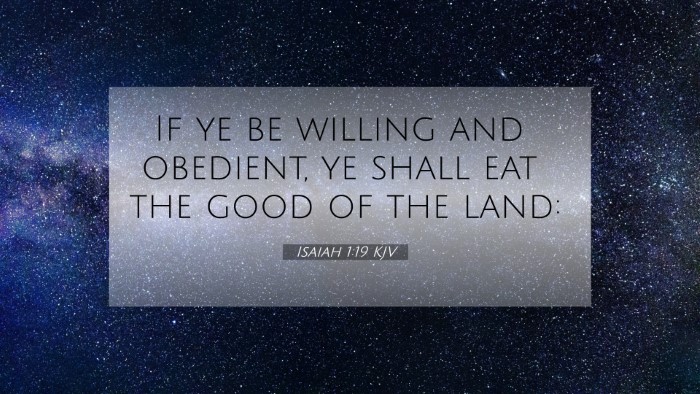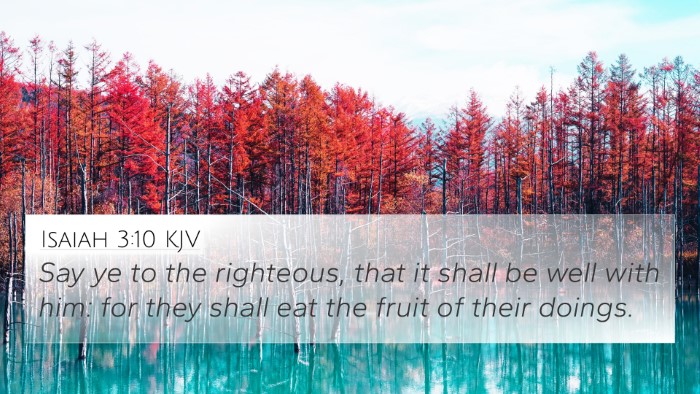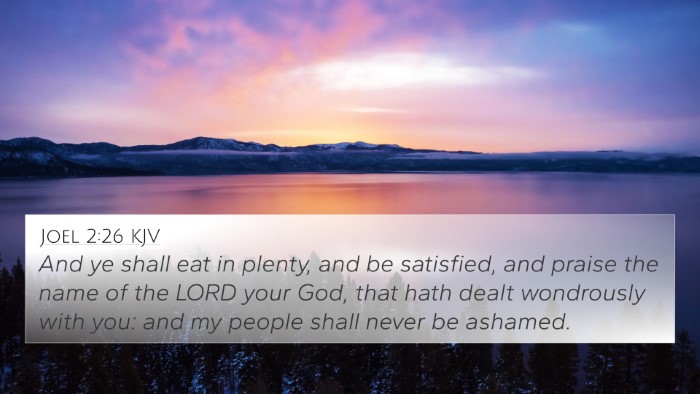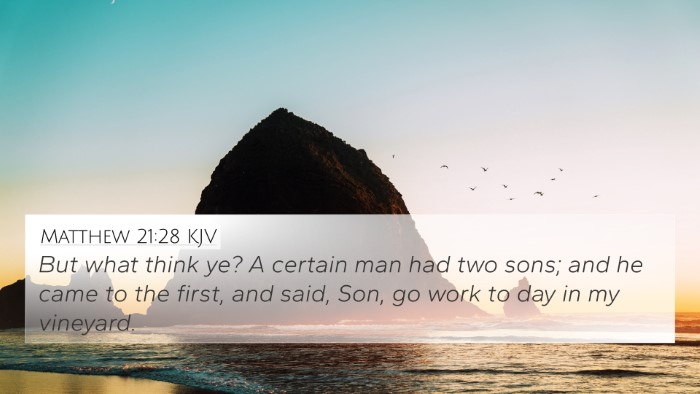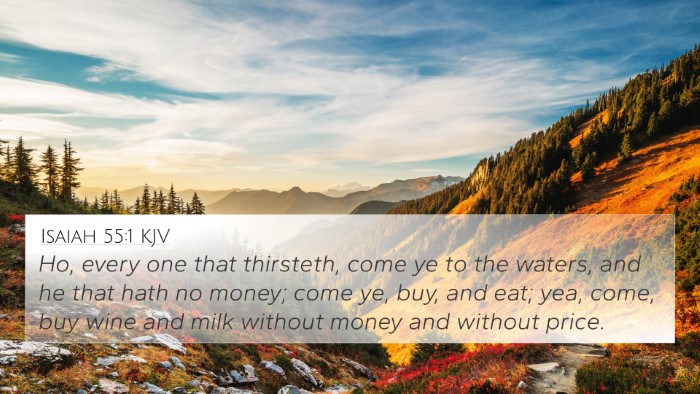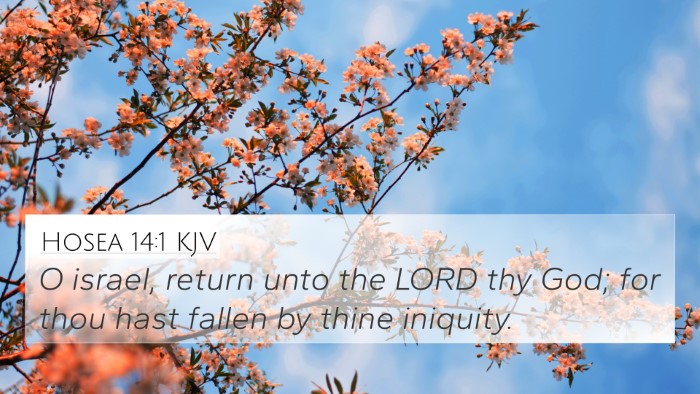Understanding Isaiah 1:19
Isaiah 1:19 states, "If you are willing and obedient, you will eat the good things of the land." This verse encapsulates a profound truth about the relationship between divine guidance and human response.
Meaning and Commentary
This verse emphasizes the importance of willingness and obedience to God's commands. Public domain commentaries provide several insights into its meaning:
- Matthew Henry: He suggests that the willingness to obey is the first step towards enjoying God's blessings. Human effort, matched with divine favor, leads to prosperity and peace.
- Albert Barnes: According to Barnes, this verse underscores the conditional promise of God's blessing, dependent on the people's readiness to follow His ways. It serves as a reminder that spiritual rewards come through faithful actions.
- Adam Clarke: Clarke elaborates on the idea that the good things of the land refer not just to material blessings but to spiritual nourishment and fulfillment. The verse conveys a holistic approach to God's provisions, encompassing both physical and spiritual well-being.
Connections to Other Bible Verses
Isaiah 1:19 serves as a foundational text within the broader narrative of scripture. Here are some Bible cross-references that enrich our understanding:
- Deuteronomy 30:15-16: Highlights the choice between life and prosperity versus death and destruction, echoing the themes in Isaiah 1:19.
- James 1:22: Reinforces the necessity of being doers of the word, not just hearers, aligning with the call for obedience.
- Jeremiah 7:23: Offers a similar call to obedience for the people of Israel, emphasizing that listening to God's voice is crucial for enjoying His favor.
- Romans 12:1-2: Encourages a lifestyle of obedience as a living sacrifice, which correlates with the willingness to follow God's will.
- Matthew 5:6: Blessed are those who hunger and thirst for righteousness, suggesting a correlation with the blessings promised in Isaiah 1:19.
- Colossians 3:23-24: Highlights the importance of working heartily as for the Lord, connecting the theme of obedience to reward.
- Proverbs 1:23: Invites individuals to heed wisdom’s call, aligning with the concept of being willing to receive guidance.
- Hebrews 5:9: Points out that Jesus became the source of eternal salvation for those who obey Him, providing a New Testament parallel to the principle of obedience in Isaiah.
- Psalm 37:4: Promises that delighting in the Lord results in the desires of one’s heart, reflecting the good things of the land mentioned in Isaiah.
- Luke 11:28: Jesus states that those who hear the word of God and keep it are blessed, emphasizing the link between action and divine favor.
Thematic Connections
Isaiah 1:19 relates to several biblical themes through its focus on obedience, the goodness of God, and the blessings that follow faithful living. Here are some thematic Bible verse connections:
- Willingness and Obedience: Across scripture, themes of compliance and readiness to follow God’s leading appear consistently, as seen in the verses mentioned above.
- Divine Provisions: From Old Testament narratives of God providing for His people, such as manna in the wilderness, to New Testament assurances of His care, this theme weaves through both Testaments.
- Conditional Blessings: The notion that blessings are often contingent upon obedience is a pervasive theme, illustrated powerfully in passages like Deuteronomy and throughout the wisdom literature.
- Spiritual Fulfillment: The interplay of following God's commands leading to spiritual satisfaction can be traced from the Law to the teachings of Jesus and the apostolic letters.
Conclusion
In summary, Isaiah 1:19 serves as an important reminder of the connection between our actions and God’s blessings. Through being willing and obedient, believers can experience the fullness of life that God promises. This verse not only stands alone but is enriched by an inter-Biblical dialogue that connects it deeply with a multitude of other scriptures.
For those who seek to deepen their understanding of the Bible, tools such as a Bible concordance or a Bible cross-reference guide can be invaluable. Engaging in cross-reference Bible study allows for a more comprehensive view of how scriptures interact with and illuminate one another.
By exploring these connections, one can appreciate the intricate tapestry of divine wisdom woven through the biblical text, guiding believers toward a life marked by obedience and the enjoyment of God's goodness.


